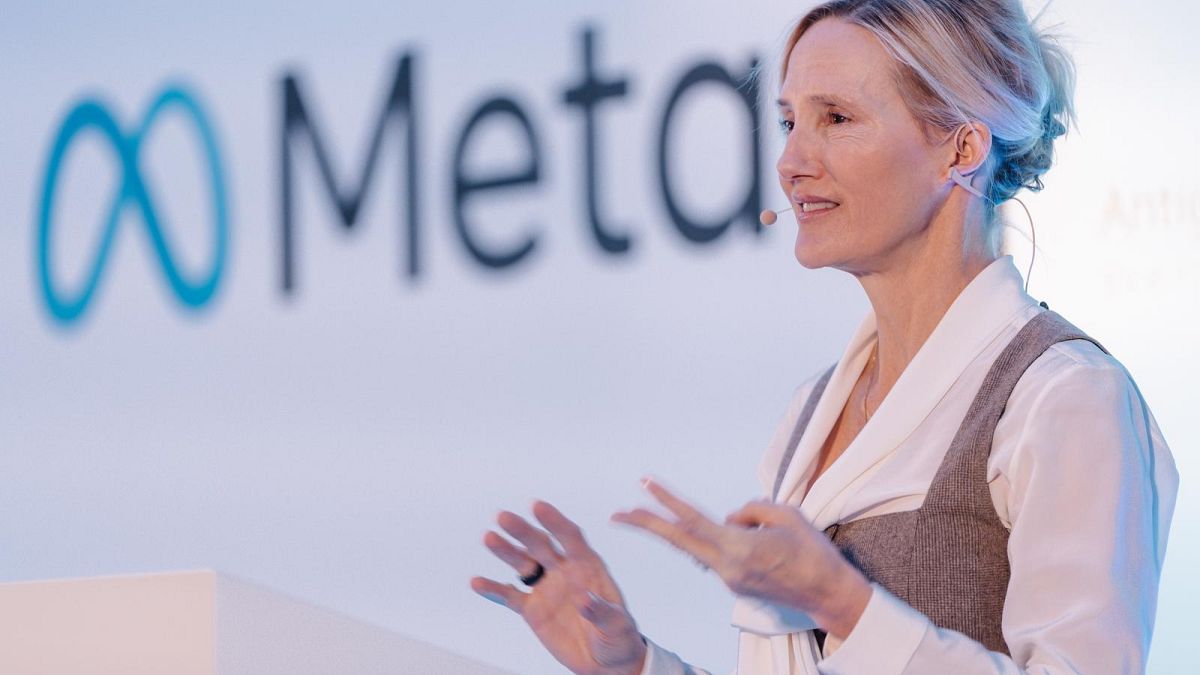Europe
Meta’s Safety Chief endorses scanning encrypted messages for child protection

Meta’s Commitment to Safeguarding Minors Online: A Comprehensive Approach
Protecting Minors from Online Harm: Meta’s Latest Initiatives
In an exclusive interview with Euronews, Antigone Davis, Meta’s VP and Head of Global Safety, shed light on the tech giant’s ambitious efforts to enhance online safety for minors. With the Meta Youth Safety event in Brussels on the horizon, Davis emphasized the importance of harmonized digital regulations across the EU to combat child abuse and ensure consistent protections for young people. She expressed strong support for the latest EU draft regulation aimed at preventing the spread of child sexual abuse material (CSAM), which has been stalled due to disagreements over the extent of message scanning, including encrypted communications.
Davis endorsed the revised proposal, which suggests that social media platforms, rather than authorities, should take responsibility for voluntary scanning of content. This approach includes scanning not only unencrypted areas but also encrypted spaces, provided it is done on a voluntary basis. “I think it makes a lot of sense,” Davis remarked. “Even in encrypted spaces, there is a lot of voluntary scanning that can be done.” She also called for unified digital rules across the EU, stressing that a harmonized approach is essential to effectively safeguard minors online.
Ensuring Age-Appropriate Access: A Unified Age Verification System
In addition to combating CSAM, Meta is advocating for a harmonized age verification system across the EU and beyond. Davis highlighted the importance of ensuring that app stores like Apple and Google take on the responsibility of verifying users’ ages before allowing them to download apps like Facebook or Instagram. Such a system would create a safer ecosystem for teens, she argued, as it would prevent minors from migrating to less protected platforms.
Currently, Meta relies on self-assessment and limited verification methods, such as ID or selfie-based age estimation, if suspicious activity is detected. However, Davis emphasized the need for a more robust system. “If we don’t address the entire ecosystem, what we’re likely to see is teens migrating from one app to another where they may not be as well protected,” she warned. The Louvain Declaration of April 2024 aligns with this vision, as EU leaders pledged to establish common standards for identity and age verification across member states.
Safeguarding Teen Mental Health in the Digital Age
Meta’s commitment to minors extends beyond age verification and CSAM prevention. Davis highlighted the platform’s efforts to protect teens’ mental health and well-being. In September, Meta introduced “teen accounts,” which empower parents to monitor and control their child’s online activities. These features include limiting screen time, filtering content, and monitoring messages. Additionally, notifications are automatically turned off after 10 p.m. to encourage teens to get adequate rest.
Davis also discussed Meta’s measures to shield teens from harmful or sensitive content, such as political or triggering material related to eating disorders. For instance, the platform no longer shows diet ads to teens. However, Meta has faced criticism over a recent policy change that could classify homosexuality as a “mental illness.” Addressing these concerns, Davis reaffirmed Meta’s commitment to preventing bullying and harassment on its platform, noting that policies for minors remain unchanged and that teens can filter out harmful comments.
Collaborative Efforts: EU and Meta’s Shared Vision for Youth Safety
The European Union and Meta share a common goal: protecting minors online. While differences in regulatory approaches between the EU and the U.S. exist, Davis noted that both sides agree on the importance of safeguarding young people. The EU’s plans for harmonized digital rules, including the draft regulation on CSAM and the Louvain Declaration, align with Meta’s vision for a safer online environment.
The EU has also announced an upcoming inquiry into the broader impact of social media on the well-being of children and young people, with a special focus on mental health. Commissioner for Health Olivér Várhelyi will lead this initiative, collaborating with other commissioners to explore how platforms like Meta can better support minors. While no timeline has been set for the study, it underscores the growing recognition of the need for comprehensive policies to address the challenges minors face online.
Addressing Concerns: Balancing Privacy and Protection
One of the most controversial aspects of Meta’s efforts is the potential scanning of encrypted messages. Critics argue that such measures could infringe on users’ privacy, but Davis maintained that voluntary scanning is a practical solution. “There is a lot of voluntary scanning that can be done even in encrypted spaces,” she said. This approach aims to strike a balance between privacy and protection, ensuring that minors are safe without compromising the security of encrypted communications.
Another area of concern is Meta’s policy on advertising, particularly its decision to stop showing diet ads to teens. While this move has been praised for promoting body positivity, some have raised questions about the platform’s broader advertising practices. Davis emphasized that Meta is continuously updating its policies to better serve the needs of minors, but challenges remain in creating a perfectly safe online environment.
Conclusion: Meta’s Responsibility in Shaping a Safer Digital Future
As Meta continues to evolve its safety measures, Davis reiterated the company’s responsibility to protect minors online. From voluntary scanning of encrypted messages to age verification systems and mental health safeguards, Meta is taking proactive steps to address the complexities of online safety. However, the road ahead is not without challenges. Collaborative efforts with policymakers, such as the harmonized EU digital rules and the Louvain Declaration, will be crucial in creating a unified and effective approach to safeguarding minors.
Ultimately, Meta’s commitment to protecting young people reflects a broader recognition of the need for accountability in the digital world. As Davis noted, ensuring a safe and supportive online environment for minors is not just a challenge but also an opportunity to shape a better future for generations to come. With ongoing innovations and partnerships, Meta is striving to lead the way in this critical mission.


















